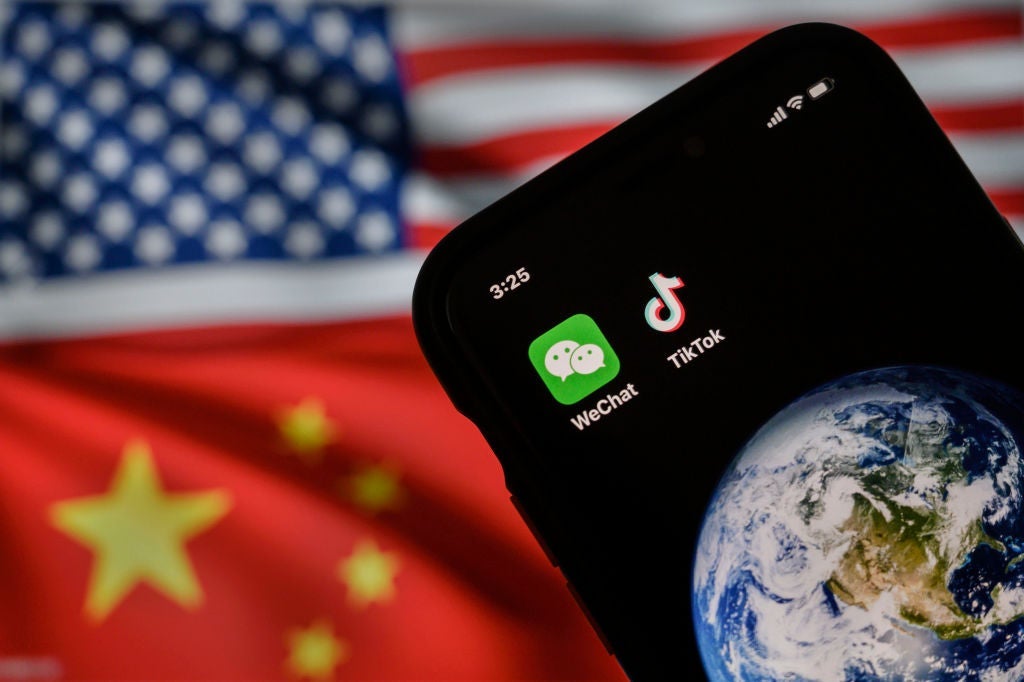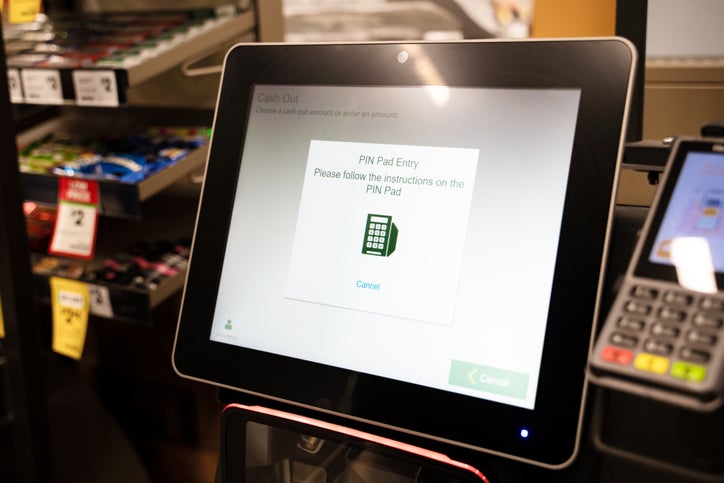

Foreign investment screening measures levied against social media company TikTok by the US administration signalled a clear warning to Chinese technology firms with ambitions to operate at scale in the US. The restrictions raise questions about how global technology investment flows might be affected and whether US companies looking to expand into China may eventually suffer the same fate.
From its founding in 2012, Beijing-based TikTok has experienced stratospheric global growth, accelerated further by the Covid-19 pandemic when it reported nearly 700 million monthly active users in July 2020.
Known in China as Douyin, TikTok’s user interface is almost identical to its domestic iteration, but the underlying data is entirely separate.
“It was a good strategy to separate the Chinese app from the rest of the world so that the requirements of the Chinese government could be limited to the Chinese app,” says analyst at research and consulting firm Omdia Charlotte Palfrey.
US ups pressure to hold data domestically
TikTok operating on different platforms wasn’t enough to reassure the US administration. President Donald Trump’s lawsuit blocking the app in the US cited concerns over the country’s 100 million monthly active users’ personal data being manipulated by the Chinese government, and resulted in a ruling that parent company ByteDance must divest TikTok to a local technology partner.
“Ensuring a provision to store data generated in the US in an appropriate way and handled to acceptable standards is fair,” says Palfrey, who cites the EU’s GDPR ruling as a similar and fair treatment of the way data should be stored and accessed within a jurisdiction.
How well do you really know your competitors?
Access the most comprehensive Company Profiles on the market, powered by GlobalData. Save hours of research. Gain competitive edge.

Thank you!
Your download email will arrive shortly
Not ready to buy yet? Download a free sample
We are confident about the unique quality of our Company Profiles. However, we want you to make the most beneficial decision for your business, so we offer a free sample that you can download by submitting the below form
By GlobalDataAt the time of writing, US companies Oracle and Walmart were front runners to acquire 20% of TikTok Global with the agreement that US user data be stored on Oracle servers within US borders.
Similarly, in March, Beijing-based Kulun Tech, owner of LGBT dating app Grindr, was also forced into a divestiture by the Committee for Foreign Investment in the United States (CFIUS), which resulted in it selling the app to San Vincente Acquisition for $608.5m. And in 2019, Chinese majority-owned healthtech start-up Patients Like Me was sold to United Health after the CFIUS forced a divestiture, again citing national security concerns.
US companies such as Oracle, which are buying up assets after forced divestitures, stand to gain much from the controversy. This runs counter to the narrative of opportunistic Chinese firms buying distressed assets in the West. The irony will not be lost on the Chinese government, according associate director at research company Rhodium Group Adam Lysenko. He predicts charges of hypocrisy from Chinese quarters.
China hits back
China retaliated in August with tougher screening measures of its own, adding the type of artificial intelligence (AI) algorithms that power TikTok to a new list of export controls.
“It is an open question how China is going to enforce these export control powers and to what extent they might impact upon how attractive China remains for Western tech firms interested in locating their research and development functions in China’s AI tech clusters,” says Lysenko.
China’s response has been relatively benign so far as the outcome of the November US election is eagerly anticipated. “China could well retaliate more aggressively in the future,” adds Lysenko.
Why the US is a key market for TikTok
Western companies looking to expand into China will have much to assess given the current trade tensions. According to Tech Nation’s 2020 Fintech and NetZero report, which surveyed companies’ cross-border expansion intentions, the US consistently outranks China for the best tech trading opportunities.
The US market is a homogeneous market of 350 million users with high levels of online spending and some of the highest advertising rates in the world.
“The social media revenue model [in the US] is largely advertising-based so companies such as TikTok are not just looking at user numbers,” says Palfrey.
Even if the Chinese state tightens investment controls, Gerard Grech, CEO of UK business accelerator Tech Nation, remains positive about the expansion plans of the UK companies he works with.
“We are seeing a lot of expansion into the Asia-Pacific region in Singapore, Indonesia, Malaysia, Thailand and Japan – these markets are extremely attractive to companies we work with,” he says.
“I think where emerging technology is concerned that directly affects national security concerns, there shouldn’t be any blanket licence for screening; you have to take each on a case-by-case basis and apply common sense.”
UK falls into line with US
However, balancing national security with free trade is a difficult equation. The UK government announced plans earlier in 2020 to exclude Chinese telecoms infrastructure provider Huawei from its 5G network by 2030 due to national security concerns. It remains to be seen whether Boris Johnson’s government will apply the same investment screening when it comes to TikTok exploring London as a potential location for its global headquarters.
The UK’s capital would be a good fit for TikTok Global, with 1,300 of its 1,600 European employees based in the UK and Ireland. TikTok has announced its intention to establish a data centre in Ireland by 2022, and a further $500m investment that will “create hundreds of jobs and ultimately be the home of the European user data”. The company set up a European leadership group in Dublin at the start of 2020 to address content policy and user safety, as well as a new data privacy team.
US spotlight falls on Tencent
WeChat is another Chinese social media app under scrutiny from the US government.
“No one is talking about TikTok’s parent company ByteDance, or WeChat’s owner Tencent, which operates broadly in the US,” says Palfrey. “It is interesting how the focus is directed towards the services and not the owners.”
The CFIUS is said to be reviewing current and historical investments by Chinese technology firms including Tencent, which has made a number of acquisitions in the gaming sector as well as operating a venture capital arm in the US. Evidence of this include reports of the CFIUS requesting information from Tencent about its historical acquisition of Riot Games and the company’s 40% stake in Epic Games.
On the question of how further CFIUS investigations may affect non-Chinese foreign investors, Lysenko says the evidence is minimal.
“In theory the US investment screening regime applies to all foreign companies, but essentially all the regulatory changes made by the US government over the past few years have been made as a result of perceived threats by Chinese companies,” he says.
Trade wars go international
Increased screening of Chinese investments is a global trend that has seen even the Netherlands, long considered a bellwether of free trade, introduce “specific protection” for “vital sectors” by means of a “careful analysis of national security risks”, according to government documents.
And in June, the Indian government banned 59 Chinese apps including WeChat and TikTok following the escalation of a border dispute between the two countries in the Ladakh region. India was TikTok’s biggest market, with more than 120 million users. This is perhaps the most overt example of international technology trade wars becoming a proxy battleground for geopolitical tensions and foretells of further trade protectionism.







